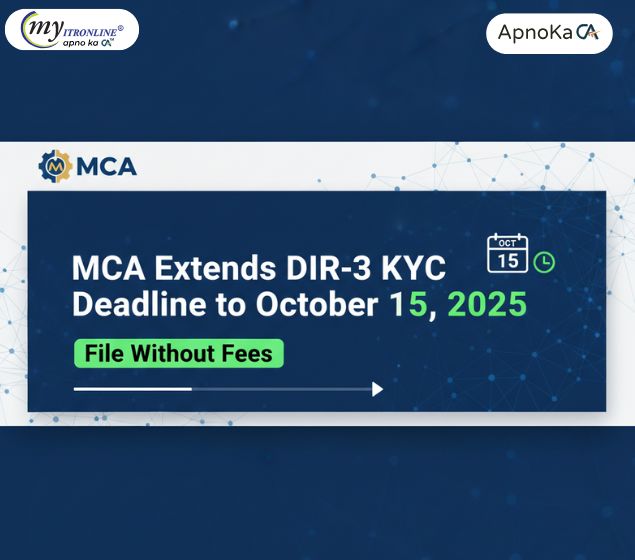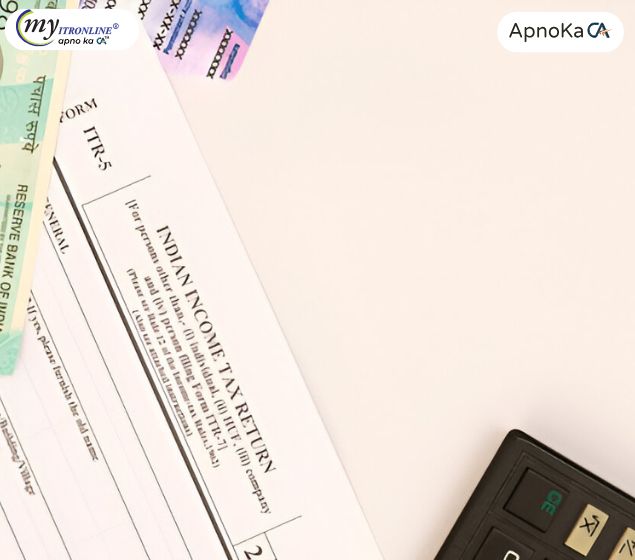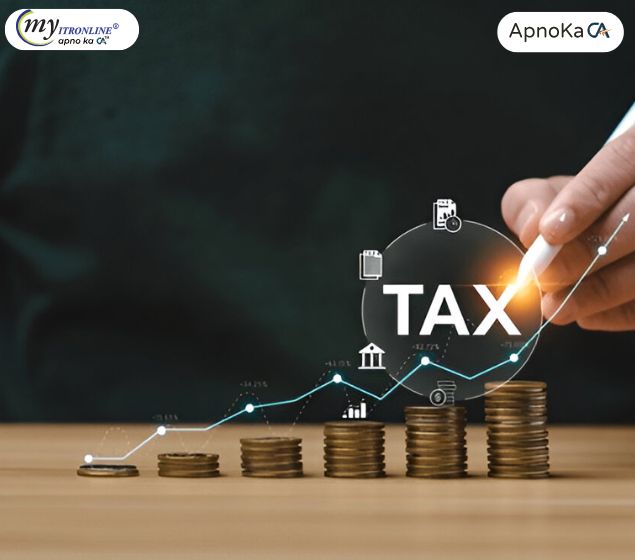# notification
12 posts in `notification` tag

MCA Extends DIR-3 KYC Deadline to October 15, 2025 - File Without Fees
The Ministry of Corporate Affairs has extended the DIR-3 KYC filing deadline from September 30, 2025 to October 15, 2025, without any filing fees. This compliance requirement applies to all directors holding a DIN. Directors can file either DIR-3 KYC (with DSC) or DIR-3 KYC-WEB (OTP-based) forms. Non-compliance will result in DIN deactivation, penalties up to ₹5,000, and disqualification from director appointments. The extension follows stakeholder representations requesting additional time for compliance.
.jpg)
Big news for legal aid! CBDT Notification S.O. 3204(E) grants vital income tax exemptions to District Legal Service Authorities in Haryana (Gurgaon, Mewat & more) from AY 2025-26. Find out which income is exempt and what conditions apply!
Big news for legal aid. The CBDT Notification S.O. 3204(E) gives important income tax exemptions to District Legal Service Authorities in Haryana, including Gurgaon, Mewat, and others, starting from AY 2025-26. Discover which income is exempt and the conditions that apply.

Attention Firms & LLPs: CBDT Releases ITR-5 Form for AY 2025-26 Filing.
The CBDT has released the updated ITR-Form 5 for Assessment Year 2025-26 (applicable to FY 2024-25) via Notification No. 42/2025 dated May 3, 2025. This blog post details who needs to file ITR-5, discusses anticipated key changes aligning with recent amendments and enhanced disclosure norms, outlines implications for taxpayers like Firms and LLPs, and provides actionable steps for compliance.

Tax Season Starts Early: ITR-1 (Sahaj) & ITR-4 (Sugam) Notified for AY 2025-26!
The blog post announces the early notification of ITR-1 (Sahaj) and ITR-4 (Sugam) forms by the CBDT for the Assessment Year 2025-26 (corresponding to Financial Year 2024-25). It details the eligibility criteria for using these forms, explains the significance of the early notification for taxpayers (more preparation time, potentially earlier filing utility release), clarifies the difference between form notification and utility release, reminds readers about the AY/FY distinction, and advises taxpayers to start gathering necessary documents while waiting for the official filing utilities to be launched on the Income Tax portal.
.jpg)
CGST Act 2017 Update: What’s New in Section 128A and Its Impact?
The CBIC's Notification 11/2025 brings significant modifications to Section 128A of the CGST Act, easing tax procedures for enterprises encountering extraordinary situations. This examination addresses the broader applicability, streamlined processes, and compliance implications.
.jpg)
Presumptive Taxation for Non-Resident Cruise Ship Operators
The CBDT has published Notification No. 9/2025, which prescribes criteria for non-resident cruise ship operators under the presumptive taxation scheme established by the Finance (No. 2) Act of 2024. This announcement details the qualifying criteria, journey conditions, and vessel characteristics for taking advantage of the regime. Its goal is to streamline compliance, improve India's cruise tourist industry, and harmonize tax rules with international norms.
.jpg)
GST Updates: Key Changes and Announcements for the Week of 14th–20th January 2025
Significant changes were made to the GST this week (January 14–20, 2025) for both taxpayers and companies. Highlights include clarifications on e-invoicing thresholds, rate modifications for EV batteries and BPO services, GST Council meeting outcomes, and extensions for GSTR-3B reporting deadlines. To assist stakeholders in successfully navigating these changes, the blog discusses notices, compliance tactics, industry responses, and impending deadlines.
.jpg)
Taxpayer Relief: GSTR-3B Filing Deadline for December 2024 Extended
The deadline for submitting GSTR-3B has been extended to December 2024 by the Central Board of Indirect Taxes and Customs (CBIC). On January 10, 2025, the notification was released with the intention of giving taxpayers compliance relief. Depending on the taxpayer's primary location of business, the updated deadlines are separated into two groups. Businesses gain from this extension, which guarantees easier GST compliance and lessens system load.
.jpg)
Essential GST Updates for Businesses and Taxpayers (Dec 10–16, 2024)
All of the major GST announcements and updates that were released between December 10 and December 16, 2024, are compiled in this blog. Input Tax Credit explanations, GST rate adjustments, e-invoicing updates, GSTR-1 filing extensions, and new features like filing NIL returns by SMS are all included. To guarantee seamless compliance and prevent fines, be informed.
.jpg)
Section 10(23FE Simplified: CBDT’s Notification 127/2024 Explained
By issuing Notification No. 127/2024, the Central Board of Direct Taxes (CBDT) has amended Section 10(23FE) of the Income-tax Act. The updated rules simplify compliance and increase the range of assets available to pension funds (PFs) and sovereign wealth funds (SWFs). In line with India's economic objectives, these adjustments are meant to draw in long-term investments in the social development and infrastructure sectors.
.png)
Understanding the New RCM Rules for Rental of Immovable Property
This blog post explains the recent changes to the Reverse Charge Mechanism (RCM) for property rentals in India. Landlords of commercial properties are now responsible for paying GST on behalf of unregistered tenants. The changes take effect on October 10, 2024. Businesses must update their accounting systems and seek professional advice to ensure compliance.

RBI Mandate: LEI for Refunds Exceeding Rs. 50 Crore
For refunds above Rs. 50 crore, non-individual entities such as businesses, partnerships, and trusts are required by the Reserve Bank of India (RBI) to get a Legal Entity Identifier (LEI). The objectives of this action are to improve worldwide compliance, risk management, and financial transparency. Financial firms and regulators may track significant financial transactions with the use of the LEI, a 20-character alphanumeric number. The RBI's announcement, how to get an LEI, and how it affects non-individual companies are all explained in this blog.
